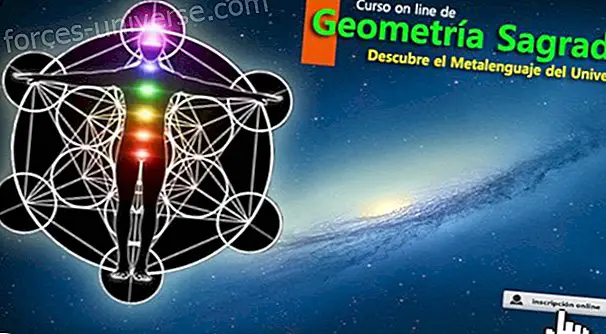
The metaphysical word arises in the first century AD by Andronicus of Rhodes, who was organizing the compendium of Aristotelian books. It comes from the Greek μετὰ τὰ φυσικά (meta tá physicá) which means "beyond physics" to refer to Aristotle's treatise on the first philosophy. This constitutes a universal knowledge, which has accompanied the first reflections of the human being, being considered the mother of all sciences. It is also known as the "first philosophy" because it seeks to explain, describe and access the principles, structures and ultimate causes of reality, being a rigorous knowledge, which is based mainly on the natural light of reason.
In this sense, through this faculty, it seeks to penetrate the folds of being as such. Therefore, all knowledge has its roots in metaphysics, and especially in its branch called: Ontology . Because they study a portion of the entity or the real. But not all sciences rely on the same processes and techniques for the development of their conjectures and studies.
How is Metaphysics divided?

On the other hand, the first philosophy has subdivisions or specific parts, which includes: the ontology, theodicy and gnoseology . It is convenient to clarify that all sciences have a material object that is studied by the uniqueness of a formal object (which qualitatively distinguishes the sciences from each other). Each of these parts is in charge of specialized aspects in the totality of the real, that is, of the Being by virtue of intuitive and discursive methods . One of the basic divisions has been synthesized throughout history as follows:
1) General metaphysics: Ontology, and 2) A special metaphysics that encompasses: 2.1.- Rational cosmology . 2.2.- Speculative anthropology or rational psychology and 2.3.- Rational or theodicy theology . As you can see, the first philosophy is a knowledge that deals with issues that contemporary empirical and scientific experimentation cannot solve, so the metaphysics is a priori reflection, that is to say, that dispenses with the sensitive experience.
What is the Ontology?

The term comes from the Greek "ὄντος " (ontos) which means "entity"; and "λόγος" (logos) which means reason, study or treaty, would literally be the study or treatise of the entity. But what is the entity? Entity, is everything that exists or can exist under any modality (whether within the material or immaterial sphere - ideal-) such as: a dog, a human being, your computer, justice, love, numbers, a Angel or God Therefore, the starting point of metaphysics is ontology.
Hence, the ontology is the part of metaphysics that studies the so-called " ontological entity " that is, that which is materially common to all sciences, but which differs in terms of its formal order of study (that is, from the optics point of view of how to analyze what is studied). The ontology thus investigates the formality of any reality in terms of its modalities, structures, properties and causations.
Therefore, ontology is the study of the entity as being and its essential attributes, so it answers the question What exists? Referring to the material cause of any object or reality. While metaphysics responds to the mode of how is what exists? Responding to the formal cause (which in turn, integrates the efficient and final cause of any substance and accident).
So the classic questions of metaphysics include the following questions: What is the mind and how does it relate to the body ?; What is the essence of time and space ?; What is the principle of nature ?; What are universals ?; Is there free will or is everything determined ?; God exists?; What's the purpose of the human existence?; Is the soul immortal ?; Why is there something instead of nothing?
What is the Substance and the Accident?

These concepts are the most classic of metaphysics and constitute its cornerstone, because they are limited to the common or ontological entity, which are categorical entities . The substance comes from the Greek "oὐσία" (ousia that translates as "underlying", "substance") refers to the existence of the individual entity with material and formal presence within space-time, referring to what subsists by itself, to specific entity, including: you who read this, your computer, the table where it rests, a book, your pet, etc ... In other words, they are subject to which properties, qualities or quantities can be preached. This type of entity is known as " first substance " or " essence ."
While, the accident refers to the way of being, which occurred in an individual entity, by virtue of something else. Therefore, the accident is a contingent modality that does not modify the essence and that could be (be) or not be (not be) in the first substance. Example: If you paint your hair, you have suffered an accidental change in your head, but that's not why you stop being you. With this, there is no change of essence. Or more so if a person; let's say ... "Pedro" loses an arm, he is still "pedro".
On the other hand, "death" in front of the essence, could be considered only an accidental change of matter. For example, if your body becomes ill and with the advancement of scientific procedures in the area of neuroscience, your brain could be transferred to another body, or even more, your consciousness with your memory, personality, cognitions and emotions be extracted and put into a computer, would you stop being you? This opens the reflection in the field of reincarnations and the immortality of the soul or psyche.
There are also second substances, which refer to general concepts that are abstracted from the first substances by the action of understanding. They are in the ideal sphere, they are incorruptible and timeless and they already have their form or essence, in this type substances of an ethical nature would enter, and by analogy of the practice of virtues or defects, the symbolic representation of Angels as species . Consequently, the second substances are divided into genera and species, for example: You who read this, you are a man or woman, man is a homo sapiens (species), and this is a species of the mammalian genus, and this one at its It is once a kind of the genus to be alive, and so on, until it reaches a universal genre that contains everything. This is the concept of BEING .
What is being? Is it possible to conceptualize it?

Being is logically, the concept of greater extension, because it encompasses all possible or not possible entities, existing or non-existent, of the material sphere and of the immaterial sphere. And for that reason, it is the concept of lesser understanding or intention, because it cannot be pointed out, of all existing entities, what is the pure general being or in itself, that is, to signal this Xs is the self in itself . This reveals a broad problem throughout the history of thought that has generated several metaphysical systems, where from the reflection optics (formal object quod) it diversifies according to the number of substances admitted: a single substance, as in the case of Spinoza who admitted monism . Two substances, such as the case of Plato or Descartes that started from dualism (thinking and extensive), three substances, or even an indefinite number of substances called pluralism .
The being interferes with an eternal and creative activity that mysteriously impacts understanding, reason and human consciousness. Hence, throughout the history of Western thought, it has confused the BE with the entities, for example: In ancient times, Plato when affirming that ideas, or during the Middle Ages that God, they were the being itself, it falls into what Heidegger called an ontoteology and the being would be confused with the entity, since ideas and God are predicamental entities that They also participate in the BE.
Finally, it can be seen that four are the fundamental questions of the metaphysician. First, an existential question that answers What exists? Is there, God, the world? Subsequently a dispute over what is what exists, that is, what is its consistency or essence? What am I, What is God, What is the world? then an accident or a way of being that is preached by any entity, what are the properties of a person, of the world, of God or of an angel or demon? and the last one inquires about the reason for being, why and for what of the property of an entity, which could be exemplified with the following questions Why do I exist? Why does God and a demon exist? or the classic of all metaphysics Why is Being and not rather Nothing?
In the next installments we will reflect and comment on the other parts of metaphysics, as well as their methods, the types of entities and some metaphysical answers to such questions will be announced, taking into account the different perspectives of knowledge such as: realism, idealism, empiricism, rationalism, criticism, and phenomenology; among other curiosities.
Author: Kevin Samir Parra Rueda, editor in the great family of Hermandadblanca.org
More information in:
- Aristotle (tr. 1978). Metaphysics (6th ed.). Buenos Aires: Porrúa SA translation by Francisco Larroyo.
- Ferrater, J. (1964). Dictionary of Philosophy . (5th ed.). Buenos Aires, Argentina: South American Editorial.
- González, A. (1967). Metaphysics Treaty: Ontology . (2nd ed.). Madrid, Spain: Gredos, SA






